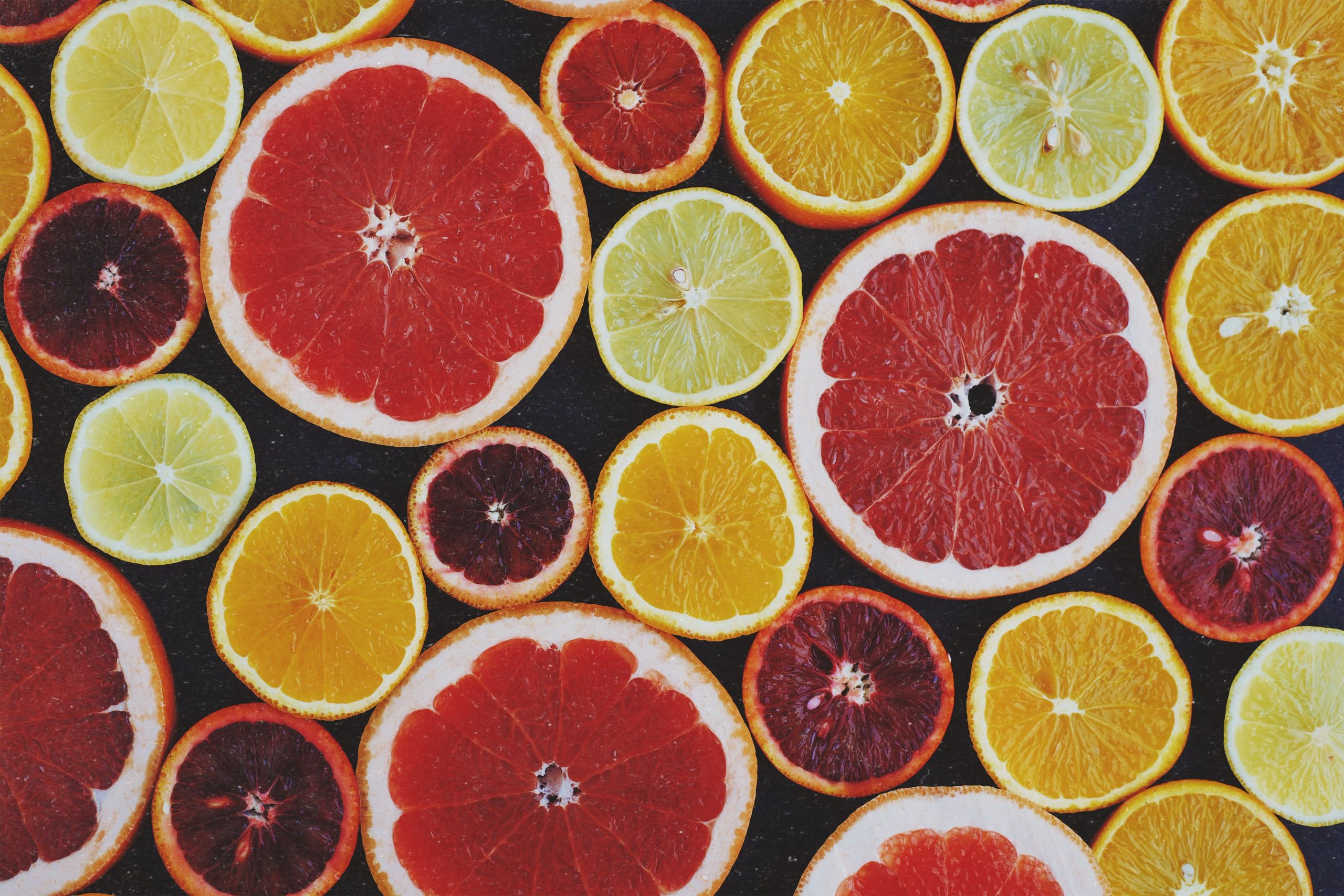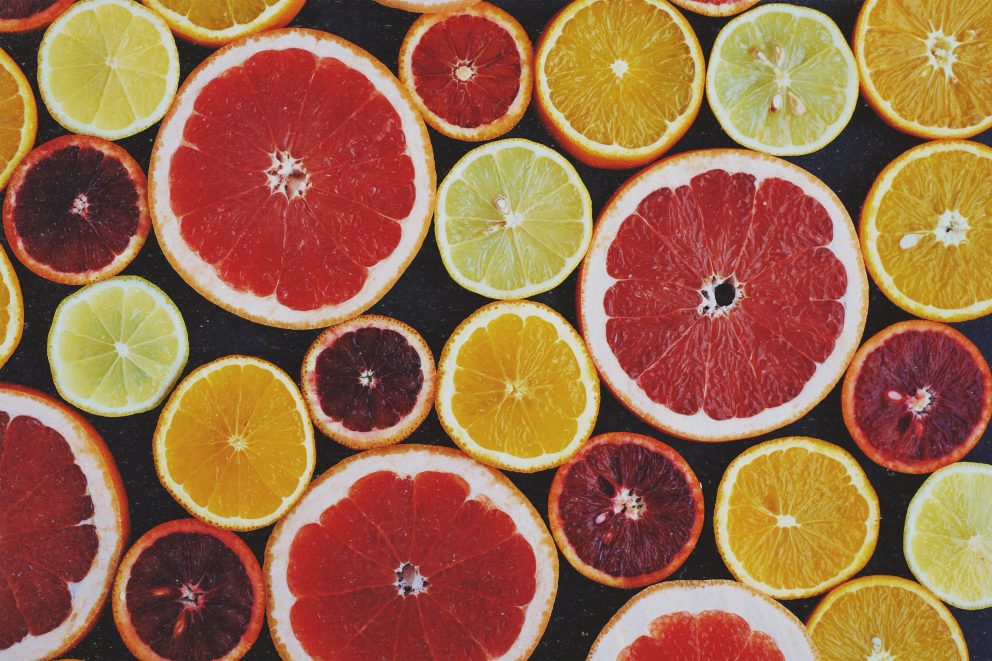
What is Limonene? Understanding the Benefits of the Limonene Terpene
Photo by Lena Khrupina
What do cannabis, citrus fruits, and lemon-scented floor cleaner all have in common? They all contain the terpene limonene. Cannabinoids drive so much of the interest in medical marijuana but the terpenes found in cannabis give each strain of marijuana its unique flavor and scent.
If you’re new to cannabis you may have wondered why dispensaries make cannabis flower available to be smelled. There may be testers in small jars or contraptions with holes or vents. This is so patients can select strains that have a scent that resonates with them. Terpenes like limonene drive the scents and flavors of many plants.
Limonene is one of the most prevalent terpenes in cannabis. Terpenes are phytochemicals, chemicals made by plants, that are not only responsible for plants’ unique scents and flavors, they also serve different purposes in keeping plants alive and the health of the animals and humans that consume them.
Terpenes can help attract pollinators or deflect pests but they also have a whole host of health benefits for humans. Terpenes in addition to driving the differences of cannabis strains also help contribute to what is known as the entourage effect.
Basically, the entourage effect is how the collective blend of terpenes, cannabinoids, and flavonoids all create one unique effect greater than their individual effects. For example, cannabinoids turn up and down certain body functions by interacting with your endocannabinoid system.
Cannabinoids like THC can cause euphoria, the munchies, and reduce inflammation. Terpenes and flavonoids can temper or increase how cannabinoids affect you. For example, limonene can help add to the euphoria of THC while the pinene in peppercorns can help you stop being too high or avoid anxiety when using cannabis.
This article specifically highlights the terpene limonene, how it affects you and how it can impact your health and your high.
- What does the limonene terpene do?
- What are the health benefits of limonene?
- Are there any risks or health hazards associated with limonene?
Find out how limonene plays into your medical marijuana use and how it impacts your health.
What Is Limonene?
Limonene is a terpene which is found predominantly in the oil of citrus fruits but also found in many plants. Limonene gives the skin of grapefruits, oranges, lemon, and limes their distinct flavor and scent. You wouldn’t automatically think oranges and lemons have the same chemical compounds as cannabis, but cannabis shares terpenes with many other plants like lavender, peppercorns, and even pine trees.
These shared terpenes are partly why smelling your cannabis flower can be so beneficial. It can seem similar to wine tasting or even look a bit excessive to a new patient. While it can help you better appreciate cannabis, unlike wine which can mimic certain flavor notes, cannabis actually shares the same terpenes as other plants.
The flavor and scent notes you pick up from smelling cannabis flower can actually help you understand the chemical breakdown of some strains. Your affinity to some scents could be your body telling you which blends of terpenes and cannabinoids might serve you best. This scent appeal can help you in getting the most from your cannabis.
Limonene not only occurs in citrus fruits but also in certain trees and bushes, vegetables, meats, and even spices. Given how easily it is metabolized by the body it is also used in a variety of foods, beverages, supplements, soaps, and perfumes.
If you’re smelling fresh lemon scent cleaner, citrus fragrance in perfume, or enjoying sour candy it just might contain limonene. Limonene is generally recognized to be safe for use as a food additive, flavoring, and fragrance. Also given how readily it’s metabolized by the body it can be used in various ways.
While not hazardous to humans there are some potential issues with using limonene discussed later in this article.
Limonene Pronunciation
Often when reading complex scientific terminology and chemical names you may wonder about the exact pronunciation. Limonene is pronounced li-muh-neen. It takes its name from the Italian word for lemon, limone.
Limonene Molecular Weight
The molecular weight of limonene is 136.23 g/mol. G/mol is the format to judge molecular mass. The molar mass of a compound uses g/mol to numerically represent the average mass of one molecule of a chemical, in daltons.
Chemical Formula For Limonene
The chemical formula for limonene is C10H16. Limonene has 10 carbon atoms attached to 16 hydrogen atoms. Limonene has two different isomers which means that they have the same chemical make-up but a subtly different chemical structure.
Limonene Structure
The limonene molecule has a structure with a chiral center. Limonene is a cyclohex-1-ene substituted by a methyl group at position 1 and a prop-1-en-2-yl group at position 4 respectively. Limonene exists in two enantiomeric forms: R and S based on its chemical makeup.
These isomers have the same chemical make-up but like delta-8 vs delta-9, they are different in how they function based on how their atoms are organized. The R enantiomer, is also known as d-limonene and the S enantiomer is known as l-limonene.
What Is D-Limonene or R-Limonene?
There are two different varieties of limonene. The traditional limonene that’s found in oranges, lemons, limes, and other citrus fruits is D-limonene. This version of limonene is one of the main components in orange peel. It’s the source of the “citrus” scent that permeates rinds and zest.
What Is L-Limonene or S-Limonene?
Another form of limonene that isn’t as abundant in nature is l-limonene. Unlike the citrus scent of traditional limonene, this version of limonene has a piny almost turpentine-like odor. This version of limonene is produced by caraway, dill, and bergamot plants. It contributes to the flavors of these plants’ edible portions.
Apply for a Medical Marijuana Card Online Today
Join over 100,000 patients who have chosen Green Health Docs as their medical cannabis doctors. We have a 99% approval rate and offer a 100% money back guarantee!
What Does Limonene Do?
Limonene has a wide range of uses to the plants that make it and a broad ecological role in their development. Limonene is an antifeedant, the limonene serves as a defense mechanism in baby plants. Over time, the limonene will dwindle but this serves to protect growing and developing from hungry herbivores.
Limonene’s scent isn’t just enjoyable to humans, it can also work as an attractant to bees and other bugs that serve as natural pollinators. It also has certain antifungal properties to protect plants from potential fungal parasites.
Limonene also has certain allelopathic properties. In hot climates, oils with limonene can seep into the ground which can affect underground organisms and deter the root growth of other plants.
Limonene Effects
Despite the negative effects limonene might have on some animals and other plants, limonene can affect the body in different ways. Limonene is an antioxidant. Certain “free radicals” which exist in harmful chemicals in our environment, alcohol, and other toxins.
Free radicals essentially exist with one missing electron. These hungry molecules can put our cells under undue oxidative stress as they try to get those electrons from our cells. This oxidative stress is the cause of aging and many diseases.
Antioxidants, like limonene, will often engage with these free radicals and protect our cells from that stress. This helps people reduce their risk of cancer and even the signs of aging as there’s less oxidative stress of these free radicals.
Studies have also found that limonene even has anti-inflammatory properties and can prevent tumor growth in animals.
Limonene Terpene Benefits
Part of the appeal of limonene is that it has many health benefits. One big appeal of limonene is that, via the entourage effect, it can help increase the euphoric effects. Limone has been shown to reduce stress when mice were exposed to lemon oil vapor.
This stress reduction effect is often why limonene is credited with contributing to the euphoric effects of cannabis. Via the entourage effect, limonene combined with THC and other terpenes work together in some strains to provide euphoria and stress relief.
High Limonene Strains
Given its various health benefits and uses you may be curious which strains are particularly high in limonene. High limonene strains can often be easy to identify, strains that have “lemon” or “sour” in their name are usually rich in limonene.
High levels of limonene can be found in popular strains like O.G. Kush, Sour Diesel, Banana Kush, Super Lemon Haze, Do-Si-Dos, Durban Poison, Jack Herer, and Jack the Ripper.

Photo by Anna Tukhfatullina Food Photographer/Stylist
Limonene Uses
Given the popularity of citrus fruits in the human diet, limonene is plentiful from the processing of citrus products. There is food grade limonene and technical grade limonene.
Limonene can be used in so many different products. The aforementioned health benefits have increased the popularity of limonene supplements. Limonene can be used as a food additive to add citrus notes, a bit of sourness, and can even be added to medications to mask their taste.
Limonene is used in many types of products to offer a lemon or orange fragrance. Limonene’s fragrance can often be added to perfumes, cosmetics, personal care products, and cleaning products.
In addition to flavor and scent appeal, limonene has natural chemical uses. Given its innate ability to tackle pests it’s often used as a botanical insecticide and organic herbicide. Given that it’s not toxic to humans, limonene is used for flea and tick control on pets, as an insecticide spray, an outdoor dog and cat repellent, a mosquito larvicide, and in topical insect repellents safe to use on your skin.
Chemically limonene can help dissolve oils so it can be added to products ranging from hand cleansers to paint strippers. It can be used as an adhesive remover which explains why products like Goo-Gone have a citrus scent.
Limonene is even used to dissolve support structures to items fabricated by 3D printers. The plastics in 3D printing are often delicate and technical grade limonene which is more potent can help dissolve these bits.
Limonene In Skincare
Limonene is often used in skincare and not only for its citrus scent. An article published in PRIME, the International Journal of Aesthetic and Anti-Ageing Medicine highlights limonene’s ability to improve the penetration of skincare products into the skin.
Essentially it can operate as a carrier for other ingredients that are unable to cross the layers of skin by reducing the resistance of the skin barrier. Its ability to dissolve oils can also help with skin care.
Additionally, its antioxidant status can help reduce free radicals that can cause oxidation on the sensitive parts of your face.
D-Limonene Hazards
Limonene, while healthy and easily metabolized by the human body, is not completely harmless. While highly beneficial to human health there are some environmental issues with limonene existing in excess and it can still cause some problems for humans.
D-Limonene can be very irritating if it enters your eyes which makes sense because lemon juice can burn your eyes. Limonene can also cause contact dermatitis when exposed to the skin. This is when your skin reacts negatively to exposure to a substance resulting in redness, itching, or a light rash. The same is said for many essential oils which, despite being natural, can burn or irritate when touching your skin.
High concentrations of limonene, especially technical grade limonene is flammable both as a liquid and a vapor which means that it can be combustible.
Limonene is highly toxic to and can cause lasting damage to aquatic life. You may want to avoid leaving citrus skin or too many limonene filled products when at the beach and be mindful when disposing of your lemon-scented cleaning products.
Final Thoughts
Limonene is just one of the hundreds of compounds in cannabis that can interact with our body. The fact that these terpenes have so many diverse uses and benefits to the human body really highlights the true potential of cannabis.
Limonene is just the tip of the iceberg with regards to the beneficial chemicals in cannabis. When all of these combine through the entourage effect they offer healing properties that are still being thoroughly researched and explored.
If you want to get the most from limonene and see how a high limonene strain might impact your mood or well-being be sure to apply for your medical marijuana card today.
 This article has been reviewed by Dr. Anand Dugar, an anesthesiologist, pain medicine physician and the founder of Green Health Docs. Graduating from medical school in 2004 and residency in 2008, Dr. Dugar has been a licensed physician for almost 20 years and has been leading the push for medical cannabis nationwide.
This article has been reviewed by Dr. Anand Dugar, an anesthesiologist, pain medicine physician and the founder of Green Health Docs. Graduating from medical school in 2004 and residency in 2008, Dr. Dugar has been a licensed physician for almost 20 years and has been leading the push for medical cannabis nationwide.

